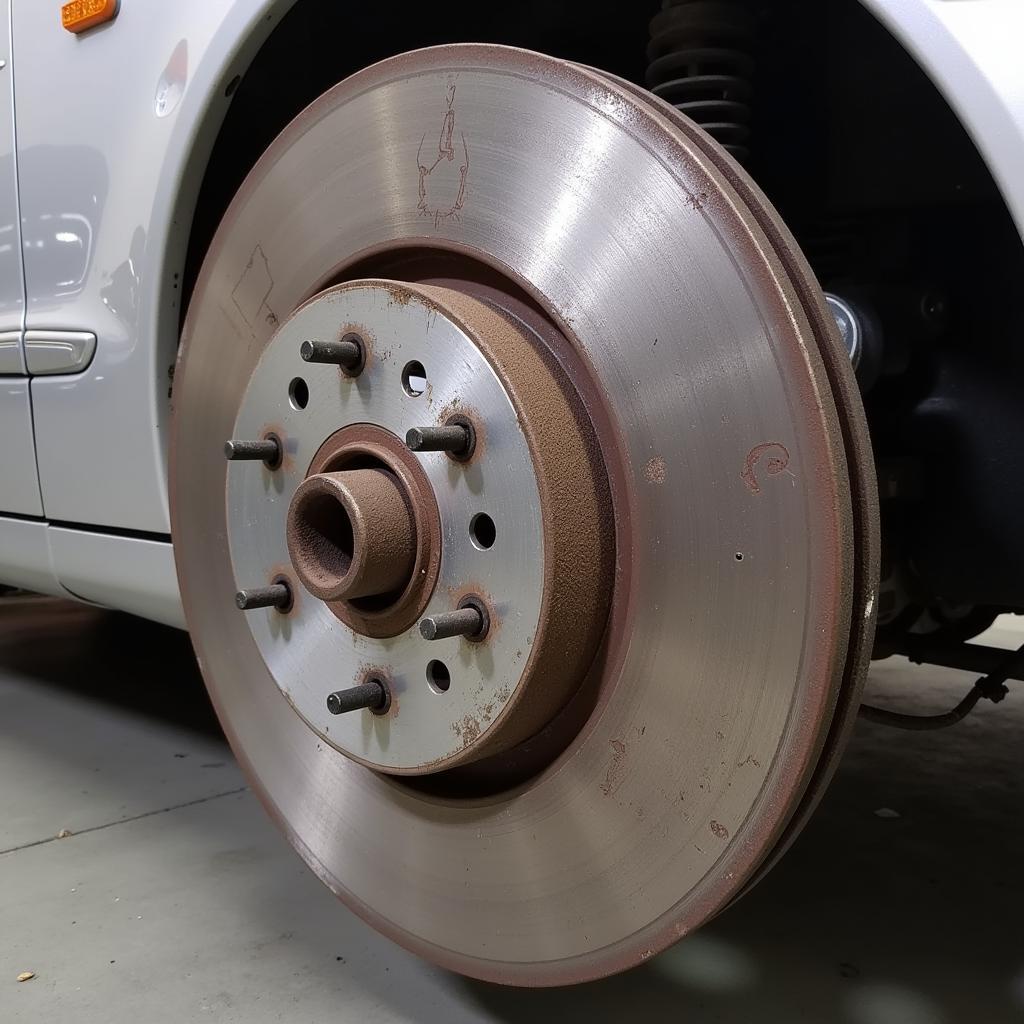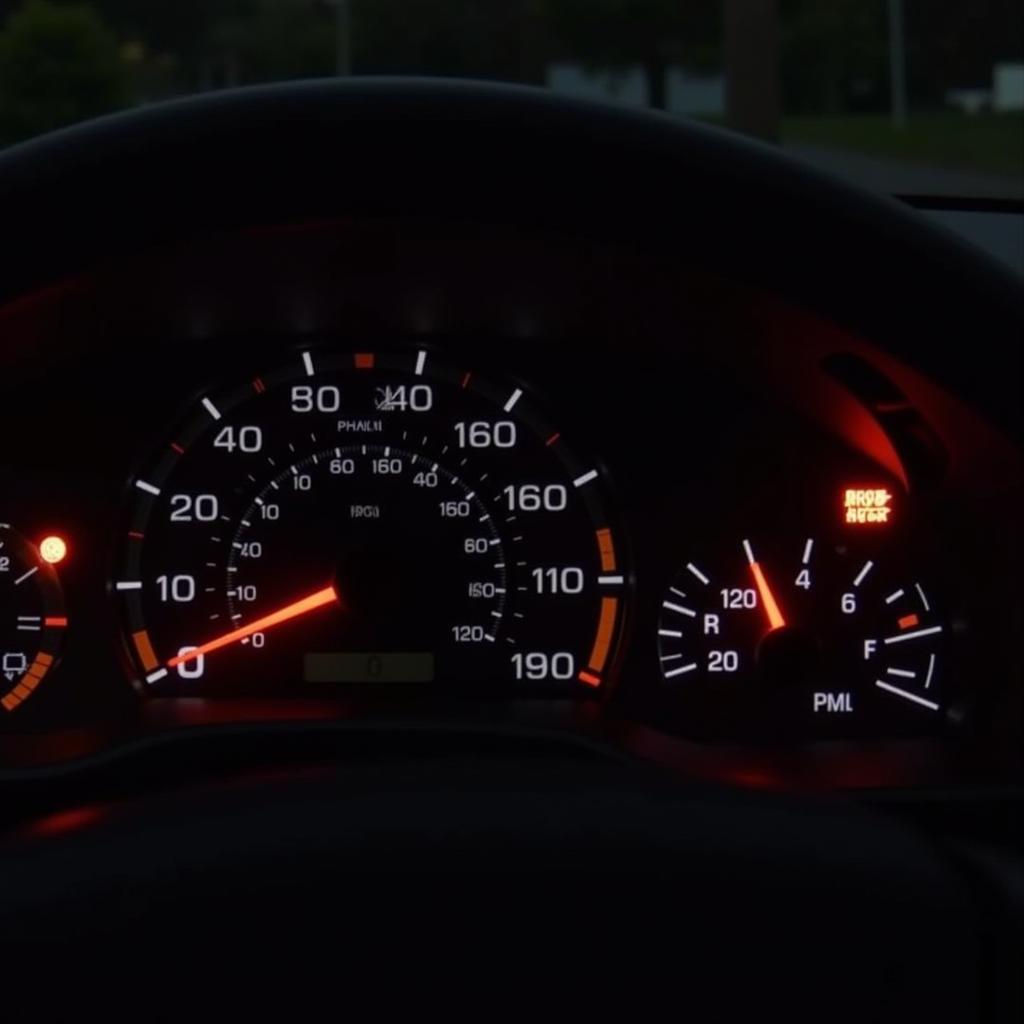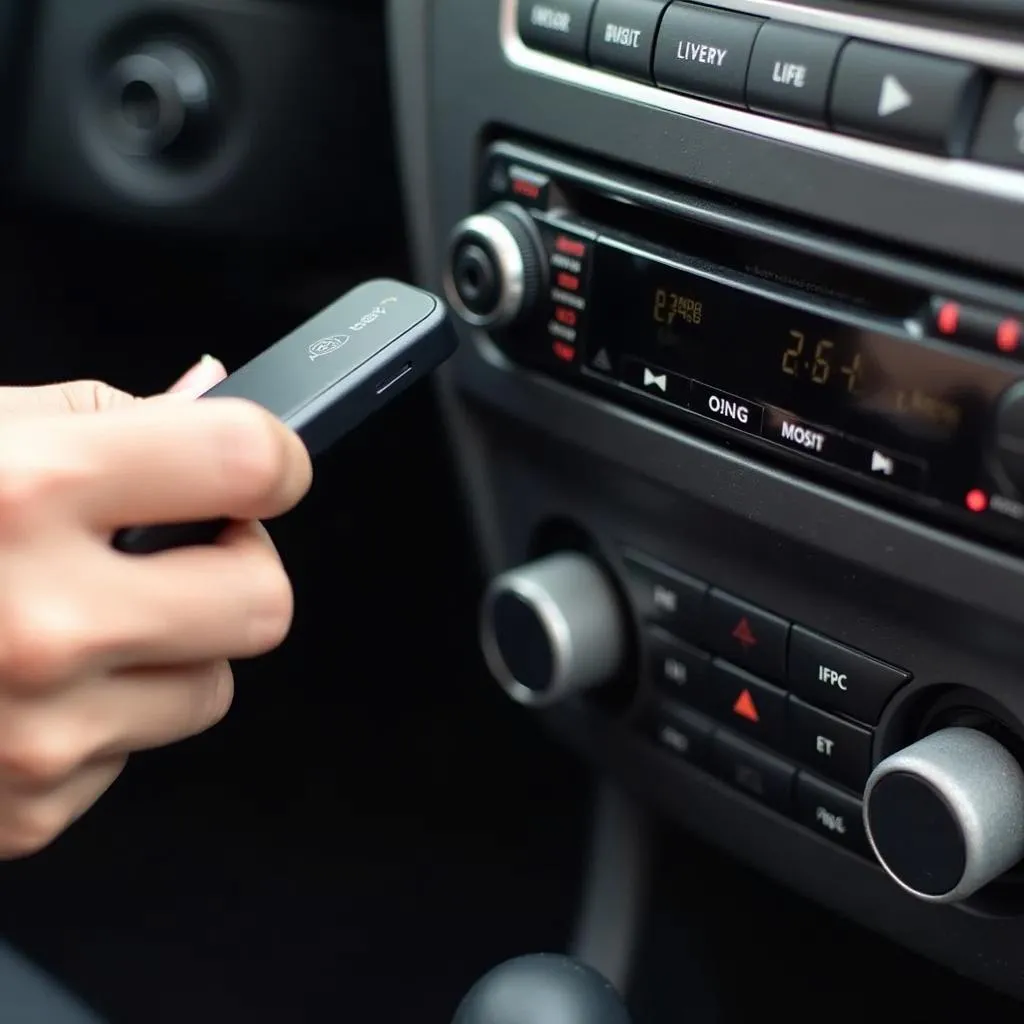If you’re driving a 2003 Mercedes E320 and a brake warning light has illuminated on your dashboard, it’s crucial to address it immediately. This warning light typically indicates a problem with your vehicle’s braking system, which could compromise your safety on the road. This comprehensive guide will delve into the common causes of a 2003 Mercedes E320 brake warning and provide potential solutions to help you get back on track safely.
Understanding Your E320’s Brake System
Before we jump into the potential causes of a brake warning, it’s helpful to understand the basics of your E320’s braking system. The system is comprised of several key components, including:
- Brake pads and rotors: These create friction to slow down and stop your vehicle.
- Brake calipers: These house the brake pads and apply pressure to them, forcing them against the rotors.
- Brake fluid: This hydraulic fluid transmits force from the brake pedal to the wheels, enabling braking.
- Sensors: Your E320 utilizes sensors to monitor brake fluid level, brake pad wear, and the overall health of the system.
Common Causes of a 2003 Mercedes E320 Brake Warning
The brake warning light in your E320 can illuminate for several reasons. Here are some of the most common culprits:
1. Worn Brake Pads
One of the most frequent causes of a brake warning light is worn brake pads. Your E320 is equipped with brake pad wear sensors that trigger the warning light when the pads reach a certain level of wear.
Solution: If worn brake pads are the issue, they will need to be replaced. It’s recommended to have both the pads and rotors inspected by a qualified mechanic to determine if replacement is necessary.
 Worn Brake Pads on a Mercedes E320
Worn Brake Pads on a Mercedes E320
2. Low Brake Fluid
Brake fluid is essential for your braking system to function correctly. A leak in the system or worn brake components can lead to low brake fluid levels, triggering the warning light.
Solution: If low brake fluid is the culprit, it’s crucial to locate and repair the source of the leak before refilling the fluid. A qualified mechanic should inspect the brake lines, hoses, and connections to identify and address any leaks.
3. Faulty Brake Sensor
Your E320 has sensors that monitor various aspects of the braking system. A faulty brake sensor can send incorrect signals to the vehicle’s computer, causing the brake warning light to illuminate even if there’s no actual problem.
Solution: A mechanic can use a diagnostic tool to read the sensor data and determine if a sensor needs replacement.
4. ABS Issues
The Anti-lock Braking System (ABS) is a critical safety feature. If there’s a problem with the ABS module, wheel speed sensors, or related wiring, it can trigger the brake warning light.
Solution: Diagnosing and repairing ABS issues often requires specialized tools and expertise. Consult a qualified mechanic for proper diagnosis and repair.
5. Master Cylinder Malfunction
The master cylinder plays a vital role in distributing brake fluid. A malfunctioning master cylinder can lead to inconsistent braking performance and trigger the warning light.
Solution: If the master cylinder is faulty, it will need to be rebuilt or replaced. This is a complex repair best left to experienced mechanics.
What to Do When the Brake Warning Light Comes On
- Don’t panic. A brake warning light doesn’t always mean your brakes are about to fail. However, it does indicate a potential issue that requires immediate attention.
- Pull over safely. As soon as it’s safe, pull over to the side of the road and assess the situation.
- Check your brake fluid level. If the reservoir is low, adding brake fluid might temporarily resolve the issue. However, it’s still crucial to have a mechanic inspect the system for leaks.
- Proceed with caution. If the brake pedal feels spongy or the braking distance seems longer than usual, avoid driving and have your car towed to a mechanic.
 Brake Warning Light on Mercedes E320 Dashboard
Brake Warning Light on Mercedes E320 Dashboard
Expert Insights
“Many car owners underestimate the importance of regular brake system inspections. At our shop, we recommend a thorough brake inspection at least once a year or every 10,000 miles to catch potential issues early on,” says John Smith, Senior Automotive Technician at XYZ Auto Repair. “This proactive approach can save you from costly repairs and ensure your safety on the road.”
Ignoring a brake warning light can have serious consequences. If you’re experiencing brake problems with your 2003 Mercedes E320, don’t hesitate to seek professional assistance. A qualified mechanic can diagnose the issue accurately and recommend the appropriate repairs to get you back on the road safely.

